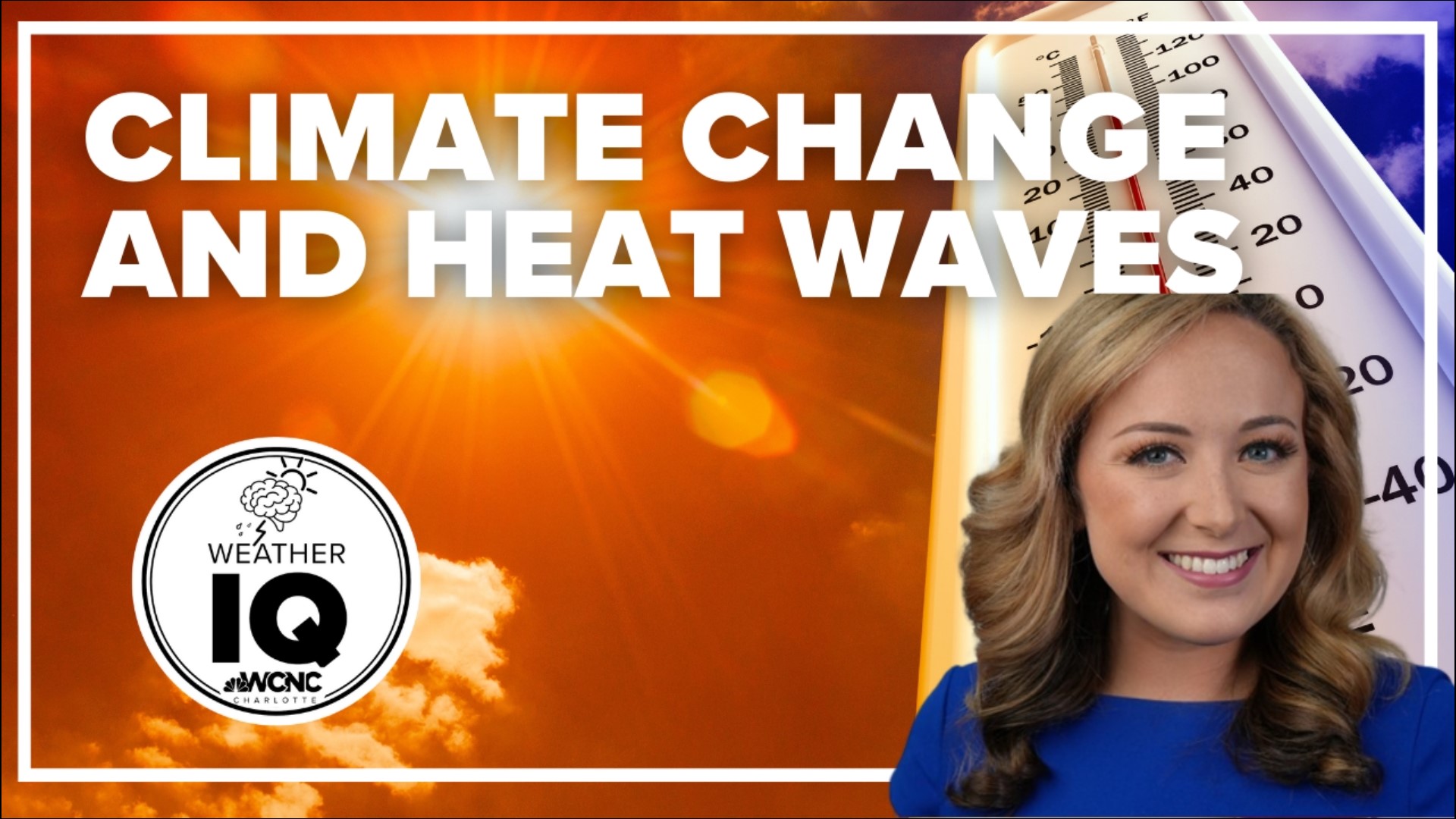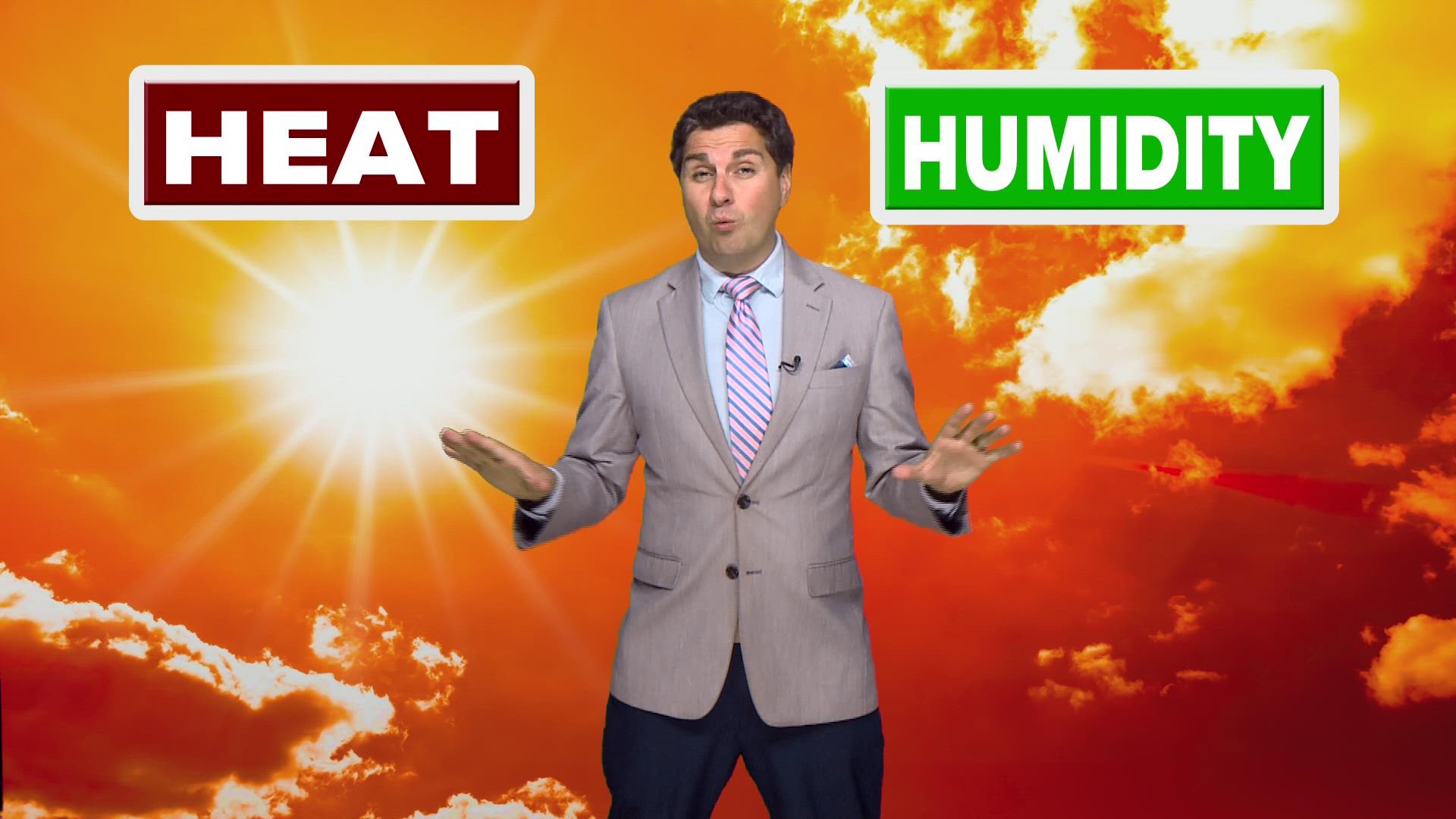CHARLOTTE, N.C. — Extreme heat events are happening more often -- not just in Charlotte, but across the United States.
As we enter into the historically hottest time of the year across the Carolinas, our team wanted to take a closer look at the connection between heat waves and climate change.
“We cannot single out a single event, connected to climate change and heat waves, but it’s more so a combination of effects," Hosmay Lopez, an oceanographer and heat wave expert at NOAA, said.
Looking at the connection between any singular weather event and climate change is too small scale. Climate in general, and especially climate change, is all about trends and patterns. Are we trending up? Are we trending down? Are things becoming more or less?
The connection between climate change and heat waves is that they're becoming more frequent, more intense, and more long-term.
New data from NOAA surveyed 50 metropolitan cities across the United States from 1961 to 2019. They found:
- Heat wave frequency increased from an average of two heat waves per year during the 1960s to six during the 2010s
- The average heat wave now is one day longer than in the 1960s
- The average heat wave season is 47 days longer than it was – which catches more people off guard.
Lopez said that heat events are often overlooked, not only by the general public, but in the scientific community.
"We are visual people, we tend to see danger, right? And we cannot see heat. Heat is just a temperature."
Just a temperature, but a data point that’s continuing to rise. New climate normals in Charlotte showed the average high temperature increased from 89° between 1960 and 1990 -- to 91° between 1990 and 2020.
Two degrees may not seem like much day-to-day, but when it’s the average temperature, it’s much more significant. This becomes our new base climate.
"What does that have impact on human health? For example, that will mean that maybe heat waves that used to be 100 degrees Fahrenheit might be 102 degrees Fahrenheit."
And that’s only factoring in the air temperature – not the heat index.
A hot air temperature during the day is more flashy than a nighttime temperature in the 70s – but this is often a better indicator of extreme heat.
"Having a very warm night in the summer puts a lot of stress on the electrical grid. And that's how you have power outages, for example," explained Lopez. "It will be one of the worst-case scenarios to have power outages during the middle of a heatwave because then we lose cooling."
This can also cause some of the worst health problems. The human body needs to cool off at night, especially after a hot day. If not, the body faces extra strain as the heart pumps harder to regulate body temperature.
What about cool waves?
Extreme heat seems to make headlines often – but do cool waves exist, too? The answer is yes, they’re just rarer.
Lopez pointed out that during the 1950s, 60s and 70s, there was about a 1-to-1 ratio between heat waves and cold waves. Now, this ratio is more like 2-to-1.
"For every cold wave, there are two heat waves. We see a very clear trend."
It's important to note heat waves have always been a part of natural variability and they do occur without human intervention. What scientists, like Lopez, are saying is that humans are exacerbating the occurrence of these heat waves.
The impact on heat waves due to climate change isn’t uniform, even across the United States. According to Lopez, heat waves will become more common and exacerbated in extreme coastal areas – like the southwestern United States and the East Coast.


